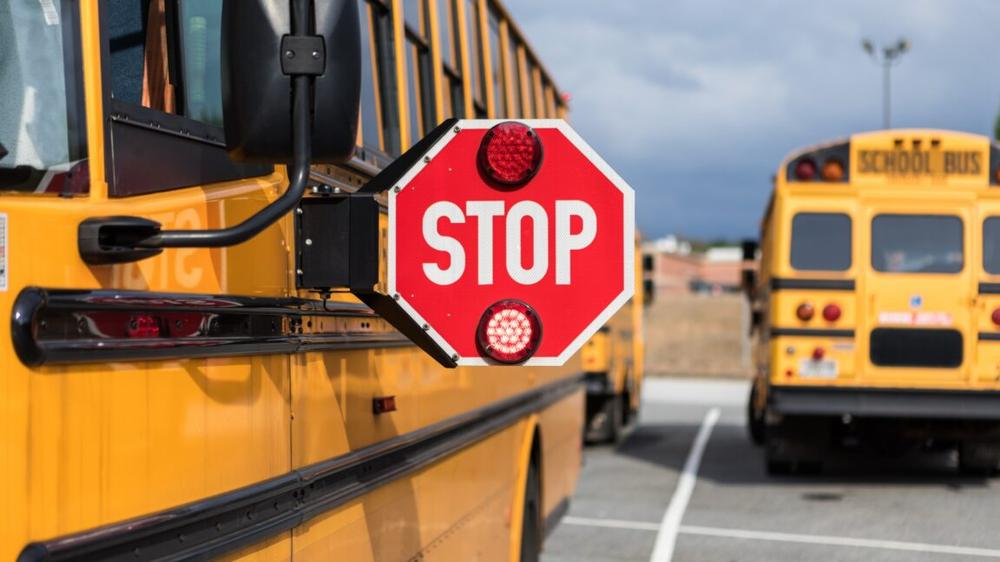The Federal Communications Commission yesterday voted to end funding for two programs designed to help schoolchildren and library patrons access the Internet.
FCC Chairman Brendan Carr claims that Biden-era orders to establish the programs exceeded the FCC's authority. The FCC voted 2-1 to kill the programs, with Republican Olivia Trusty voting with Carr and Democrat Anna Gomez dissenting.
In the previous administration, the FCC expanded the Universal Service Fund's E-Rate program in 2024 to let schools and libraries lend out Wi-Fi hotspots and services that could be used off-premises. The FCC separately decided in 2023 to let the E-Rate program pay for Wi-Fi service on school buses.
With yesterday's decisions, the Universal Service Fund administrator will deny requests to fund off-premises use of Wi-Fi hotspots and Wi-Fi equipment on school buses. Carr said that Congress temporarily authorized the hotspot program during the pandemic, and the FCC didn't have authority to bring it back when the congressional authorization expired.
"When that program ended, so did the FCC's authority to fund Wi-Fi hotspots," Carr said. "Nonetheless, the Commission unlawfully chose to keep funding hotspots in plain violation of the limits Congress imposed. Specifically, Section 254 [of the Communications Act] limits the FCC's E-Rate authority to enhance the access of telecommunication services in 'classrooms and libraries'—not any remote location at which people might want to learn."
Advocates blast “Chairman Carr’s cruel move”
Carr complained that the program imposed "no limit on where hotspots could be used," allowing "unsupervised Internet access." As for the school bus Wi-Fi program, Carr said that "E-Rate funding is meant to enhance access to telecommunications services in classrooms and libraries. A school bus is neither. We cannot simply reinterpret 'classrooms' to mean any place where learning might occur."
Carr argued that "giving kids unrestricted access to the Internet while riding the school bus is bad policy. Children are among the most impressionable members of our society. Parents have a right to decide when—and how—their kids access the Internet. Wi-Fi on school buses removes both the supervision that helps keep kids safe and the parental control that protects them from harmful or inappropriate content."
The FCC votes were criticized by advocacy groups. "Students who rely on long bus rides to complete assignments and library patrons who depend on hotspots for work, education, or telehealth will suddenly lose access to essential tools. This decision is a step backward," said Joseph Wender, executive director of the Schools, Health & Libraries Broadband Coalition.
"Chairman Carr's cruel move to delete our kids' Internet connections won't make America smarter," said Revati Prasad, executive director of the Benton Institute for Broadband & Society. The FCC "openly voted to snatch back the opportunity to offer more Americans, especially in rural areas, the high-speed Internet access to do the business of life online—pay bills, make telehealth appointments, fill out school applications—after the library closes," American Library Association President Sam Helmick said.
The advocacy groups said that in New Mexico, "Farmington Municipal Schools equipped its 90 buses with Wi-Fi, serving over 6,500 students daily. Parents reported that children returned home with homework already completed." In Ohio, "the Brown County Public Library's hotspot program allowed homeschool families to join virtual classes, entrepreneurs to run mobile businesses, and veterans to participate in telehealth appointments and certification testing."
Helmick said the library association is also "discouraged by the lack of due process, which left no opportunity for staff, patrons and library advocates to give input on the draft order." Gomez similarly criticized the process, saying the FCC didn't release the draft order until after the deadline for interested parties to meet with commissioners' offices.
Gomez: Programs weren’t illegal
Gomez disputed Carr's legal argument, saying that "Congress gave the FCC permission to expand the applications of E-Rate funding as the technologies used to educate children evolve." She pointed out that the Universal Service law says the FCC may designate additional services for support. Gomez continued:
When the E-Rate program was implemented, dial-up Internet was the standard, and today, September 30th, 2025, AOL is discontinuing dial-up service. It is safe to say the landscape of communications technology has changed dramatically throughout the life of the E-Rate program. As underscored during my visit to the High School for Environmental Studies in New York a couple of weeks ago, students are now using Chromebooks in classrooms on a regular basis, and they are expected to submit homework assignments online using platforms like Google classroom. These changes are made possible with support from E-Rate funding.
Gomez said that in 2003, under President George W. Bush, the FCC "expanded E-Rate support to cover Internet access for bookmobiles. It also clarified that E-Rate funding could cover a school bus driver's use of wireless services while transporting students, a librarian's use of wireless services on a library's mobile library unit van, and teachers' use of wireless services while accompanying students on a field trip. Expanding E-Rate support to cover hotspots and Wi-Fi on school buses was consistent with that precedent."
E-Rate and other Universal Service programs are paid for through fees imposed on phone companies, which typically pass the cost on to consumers. E-Rate has been spending about $2 billion a year in recent years and has a funding cap of about $5 billion.
Markey: “A direct attack on our children’s future”
Addressing Carr's complaint about unsupervised Internet access, Gomez said that entities receiving E-Rate funding must comply with the Children's Internet Protection Act by filtering obscene and otherwise harmful content.
"Teachers, librarians, and parents alike understand that education is not confined to the four walls of a classroom or a library," Gomez said. "The pandemic made this painfully clear. It showed us that learning occurs in all kinds of places—from the parking lot of a McDonald's to the steps outside of a public library. It would be incredibly naïve for us to think that in our post-pandemic world learning has returned to solely in-person and on-paper instruction. The era of homework by quill and candlelight is long gone and will never return."
In May, the US Senate voted along party lines to kill the hotspot program, approving a proposal by Sen. Ted Cruz (R-Texas). But Cruz's proposal didn't make it through the House of Representatives.
Dozens of Democratic lawmakers urged the FCC to drop the plan in a letter sent Monday. Sen. Ed Markey (D-Mass.) slammed the FCC move after yesterday's vote.
"The FCC's decision to repeal the E-Rate hotspots rule is a direct attack on our children's future," Markey said. "This short-sighted move will rip Wi-Fi from the hands of students and educators who rely on library and school loan programs to get online."

 New Pokemon Legends Z-A trailer sparks confusion over “broken” battle mechanic
New Pokemon Legends Z-A trailer sparks confusion over “broken” battle mechanic